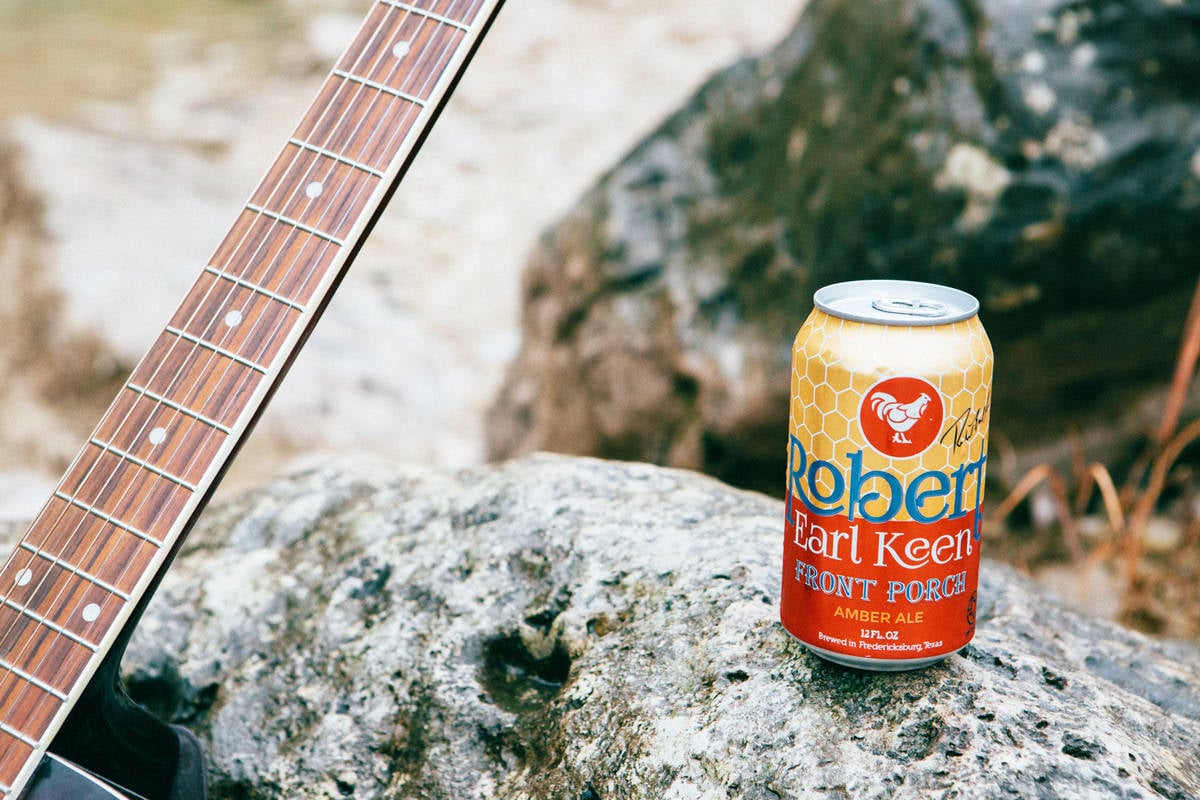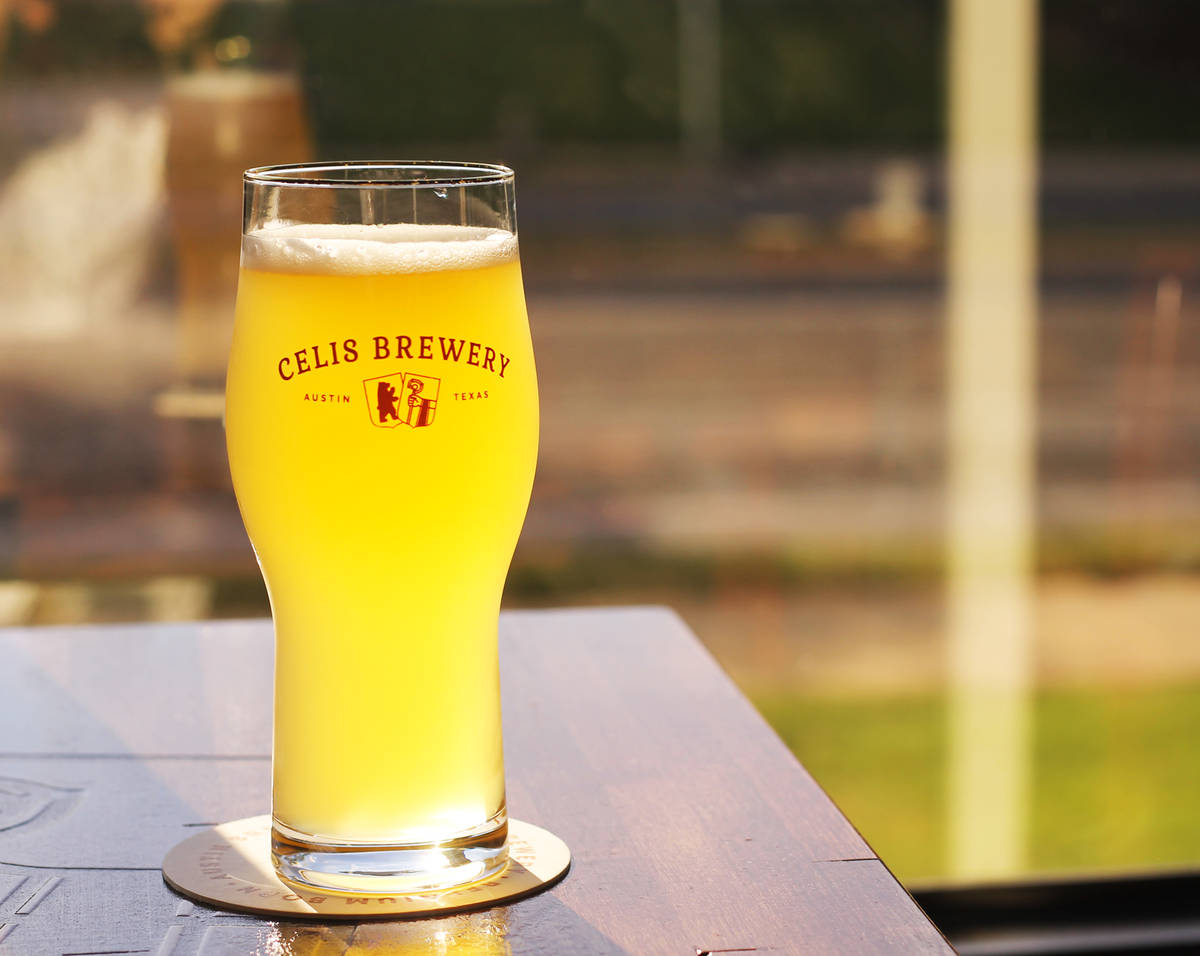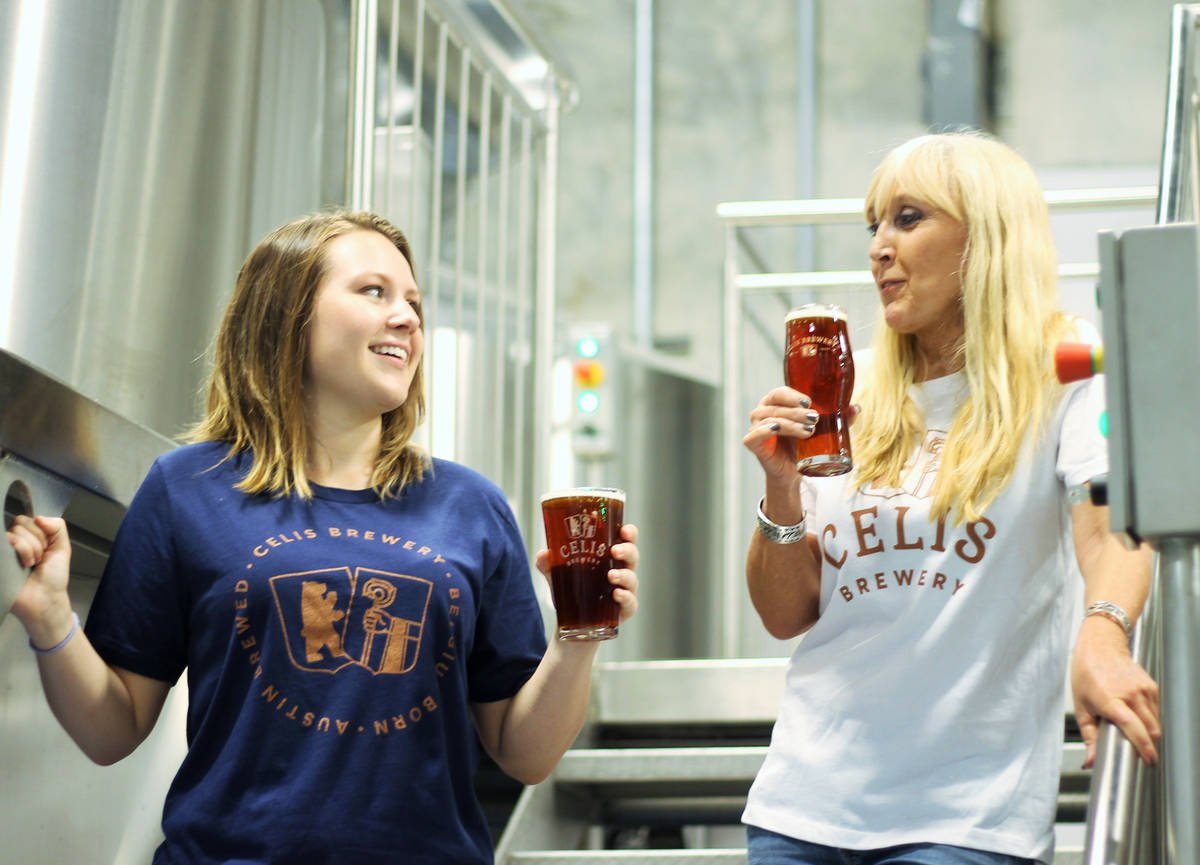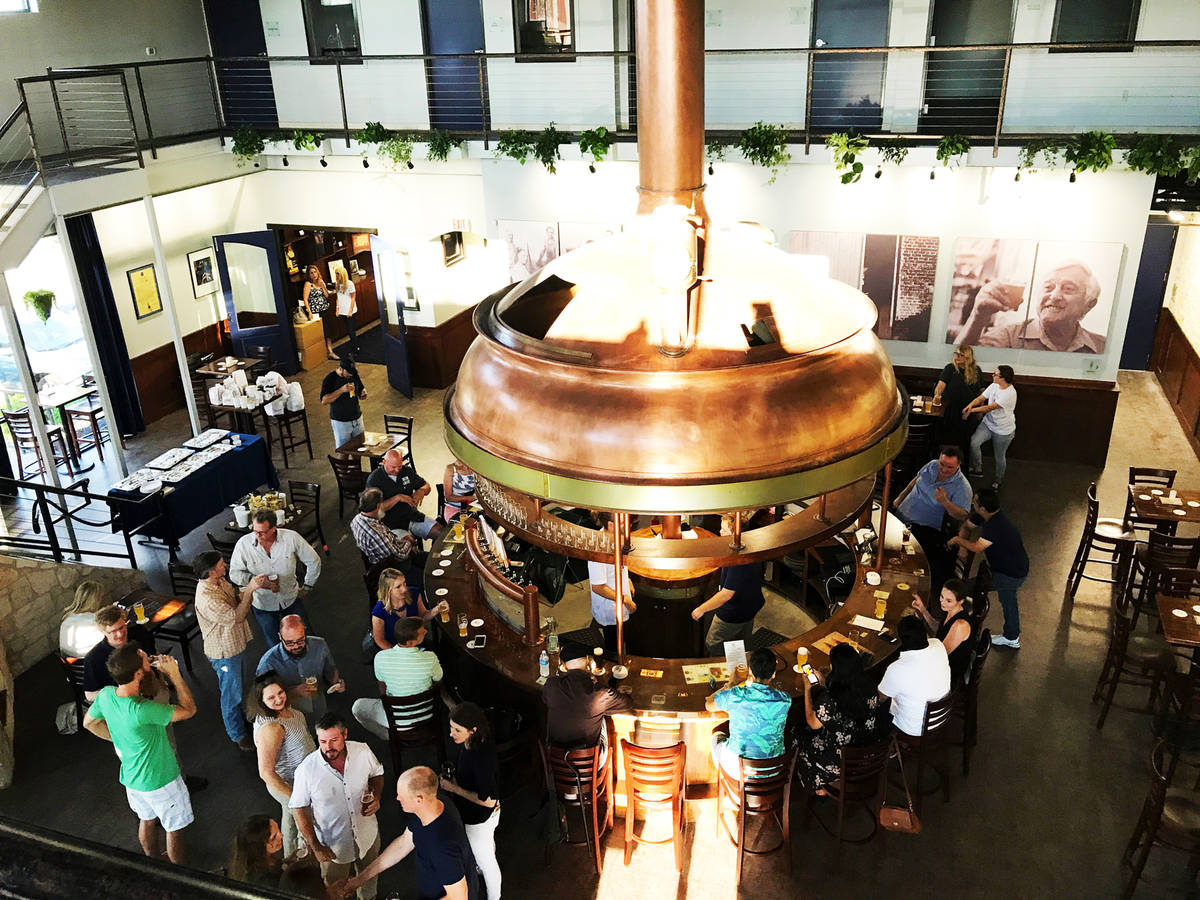Start 14-Day Trial Subscription
*No credit card required

Austin's New Brewing Heritage: Celis, Pedernales and Uncle Billy's
Austin, Texas has long been a haven for interesting people and fascinating places. Its famous slogan of “Keep Austin Weird” highlights the city’s history of attracting free thinkers and mavericks of all stripes. For the craft beer scene, that fresh approach can be attributed to three of its finest breweries as well: Uncle Billy’s Brewery, Pedernales Brewing Co. and the rejuvenated Celis Brewery. These three breweries each have their own captivating history, and together, they create a new heritage for their brands with terrific beers and a focus on quality and history.
The story of Uncle Billy’s Brewery begins in 2006 with the founding of a beer and barbecue brewpub that focused on providing smoky dishes paired with delicious beers made on-site. Founded by Rick Engel, Uncle Billy’s grew in popularity until a decision was made to start canning and distributing its core brands: Green Room IPA, Barton Springs Pale Ale and Lazy Day Lager.
While Uncle Billy’s gained brand recognition throughout the greater Austin area over the next decade, the brewpub was unable to meet the demand for its beers – and profits weren’t as great as investors had hoped. Engel was considering shuttering the business when Texas craft beer luminary Bob Leggett came into the picture.
Leggett is the founder and CEO of Artisanal Imports, known for its focus on importing excellent examples of interesting and varied beer styles from around the world to U.S. shores. Leggett saw an opportunity to expand into his hometown market with a local and genuine Texas craft brewery, and a deal was finalized in late 2017.
“Acquiring Uncle Billy’s was a big first step in expanding our reach in Texas,” Leggett said. “The story is authentic and the beers are delicious, which is exactly what I was looking for.”

The story of Uncle Billy’s Brewery begins in 2006 with the founding of a beer and barbecue brewpub that focused on providing smoky dishes paired with delicious beers.
The popular brewery recently welcomed another member to its lineup: In March, Uncle Billy’s announced the acquisition of a fellow Texas-based craft brewery: Pedernales Brewing Co., located in Fredericksburg.
Founded in 2012, Pedernales may not be well-known outside of the state, but its beers have racked up dozens of medals at major beer competitions, such as the Great American Beer Festival, World Beer Cup and U.S. Open Beer Championship (the numbers are proudly tallied on the brewery’s website).
Pedernales (pronounced “per-duh-na-lez” by locals) is known for its German-style offerings, such as its Lobo line of German-style brews. The series demonstrates the brewery’s focus on Reinheitsgebot-approved creations such Lobo Negro, a 5.6 percent ABV Schwarzbier/Dark Lager; Lobo Texas Lager, an easy-drinking sessionable Pilsner; and Lobo Hefe, a Hefeweizen that showcases all the bubblegum and clove elements you would expect from this historic style. A seasonal Oktoberfest beer is also released during autumnal months.
Another important line from Pedernales is its Robert Earl Keen series. Named for the Americana/country musician, this line is responsible for 60-70 percent of Pedernales’ total sales. The Robert Earl Keen Honey Pils accounts for half of Pedernales’ total sales volume – and it’s not hard to see why. A flawless German Pils representation, its bountiful crackery malt backbone has a mild kiss of honey sweetness in the flavor and aftertaste.
Rounding out the Robert Earl Keen line is River Raft Beer, a more by-the-books German Pils, and Front Porch Amber Ale, a ruddy and malty but quaffable American Amber that’s named after one of Keen’s most popular tunes: “The Front Porch Song,” from his 1984 album No Kinda Dancer.

The Robert Earl Keen series from Pedernales, named for the Americana/country musician, is responsible for 60-70 percent of Pedernales’ total sales.
These beers are just as easy-drinking as Keen is easygoing. After meeting him, Leggett said he was struck by how relaxed but magnetic Keen was.
“Robert is an extremely down-to-earth and personable guy – he’s an everyman. When he enters a room, he commands the attention of everyone, whether he’s on stage performing in front of thousands of his fans or relaxing in a taproom and enjoying a beer with his name on it,” Leggett said.
Keen is keen about his line of Pedernales craft beers, promoting them at shows and participating in brewery events as his schedule allows. His name has provided a tremendous boost to Pedernales’ visibility throughout the Lone Star State.
With the intermingling of Uncle Billy’s brands as well as the two Pedernales brands (Lobo and Robert Earl Keen), Leggett noted that all brands now have equal market penetration and coverage – something that would not have been possible if the breweries had stayed separate entities.
The acquisition of Pedernales by Uncle Billy’s allows the two brands to merge their distribution footprints. Before the Pedernales acquisition, Uncle Billy’s had mostly limited its distribution to the “Big Four” Texas markets: Austin, Houston, Dallas and San Antonio. Pedernales, on the other hand, established distribution to all corners of the state, “from Amarillo to Brownsville and El Paso to Texarkana – and everywhere in between,” according to Leggett.
The contrast between the Pedernales and Uncle Billy’s signature styles – English and German – was another strategic consideration in their acquisition. “With the German-style beers that Pedernales specializes in combined with the English-style Uncle Billy’s lineup, we now have a perfectly rounded-out craft beer lineup – right in the heart of Texas,” said Leggett, who is aiming to blanket Texas markets with interesting and varied beers from both breweries.
According to Leggett, both Pedernales and Uncle Billy’s represent a space “where the craft brand is local and has a loyal following, and both brands have an opportunity for impressive growth in the coming years.”

According to Bob Leggett, Pedernales and Uncle Billy’s represent a space “where the craft brand is local and has a loyal following, and both brands have an opportunity for impressive growth in the coming years."
Another craft brewery that is part of the Uncle Billy’s/Pedernales family ‒ and is making waves in the Austin area ‒ is the once-defunct Celis Brewery, which has one of the most fascinating backstories in American craft brewing history.
The story starts in the town of Hoegaarden in the Flanders region of Belgium, all the way back in 1966 – long before the craft brewing revolution began in America. Pierre Celis, a milkman from Hoegaarden, decided it was high time to revive the delicious and refreshing Belgian Witbier style, which had fallen out of favor among the beer-drinking masses of Belgium.
Celis began brewing the beer, which he simply called Hoegaarden, in his father’s stable, and transferred production to an abandoned soda factory a few years later. By 1985, Hoegaarden Brewery was producing 300,000 barrels of Pierre’s beloved Witbier and its popularity was gaining momentum locally and further afield. But sadly, the brewery was not to last.
The original Hoegaarden facility was destroyed in a fire and Celis, facing financial difficutlies, reluctantly sold the brand to Belgian brewing conglomerate Interbrew. Now owned by AB InBev, the revered Hoegaarden brand is still produced to this day – serving as the gold standard for all modern interpretations of the Witbier style.
Pierre Celis’ brewing journey was far from over, however. In 1992, Celis moved to Austin, Texas and founded a microbrewery simply named Celis Brewery. Celis had squirreled away the original yeast strain with which he brewed Hoegaarden, somehow hiding a small tube of the yeast into his socks on the flight to America. Pierre planned to spark interest in the Witbier style in America much like he had in his native Belgium.
Celis Brewery and its flagship Witbier, Celis White, was an immediate critical darling, scoring a perfect 4-star rating from The Beer Hunter himself, the late Michael Jackson, in his Pocket Guide to Beer. In addition, Celis White garnered a whopping seven medals from the Great American Beer Festival from 1992 to 2004, including an impressive five golds.

Pierre Celis, "the father of witbier," first created the recipe for Celis White all the way back in 1966 – long before the craft brewing revolution began in America.
A citrusy, fragrant and lightly hazy Belgian Witbier must have seemed like some strange potion 25 years ago to non-initiated beer drinkers, as craft beer was still a niche product. The quality was apparent, but beer buyers were used to a market that was almost entirely made up of lagers, light lagers and flavorless pilsner-style beers. So despite being expertly crafted and receiving critical acclaim, the time was not right for the original incarnation of Celis Brewery.
The brewery closed its doors in 2000 after being purchased by Miller Brewing Co. Michigan Brewing Co. purchased the Celis line in 2002 in order to continue to produce the beer, but then that company shut down in 2012, closing another chapter of the Celis story.
An exciting new chapter began last year: With seemingly every major city and town in America home to at least one craft brewery, the time was ripe for a comeback. Pierre passed away in 2011, but in 2017 his family got Celis Brewery up and running once again in Austin – determined to continue the traditions and heritage passed down from “the father of Witbier.”
Now owned and operated by Pierre’s daughter Christine and his granddaughter Daytona Camps, the brewery has been rebuilt and revitalized with a state-of-the-art facility capable of brewing 50,000 barrels.
According to a release from Christine on the Celis website, the legendary Witbier is back exactly 25 years after the brewery opened. “Pierre’s spirit and his commitment to quality lives on ‒ along with his original yeast strain,” she said.

Now owned and operated by Pierre’s daughter Christine and his granddaughter Daytona Camps, the brewery has been rebuilt and revitalized.
As part of the brewery’s rejuvenation, Celis is joining the can revolution. For the first time, Celis White will be available in 12-ounce cans. Additionally, the brewery recently announced that fruit beer Celis Raspberry will also be available in cans, another example of how the brewery is committed to not only preserving its storied history but also to exploring new styles and methods that will help them reach as many craft beer-thirsty fans as possible.
Celis now serves as the hub where Uncle Billy’s and Pedernales brands are contract-brewed. As such, it was only fitting that former Pedernales head brewer John West was brought on board as a brewer at Celis when a position opened up.
“The return of Celis Brewery to Austin has been one of the best stories in this city for years,” said Bob Leggett. “Even though Pierre Celis is gone, the beer he created is just as enjoyable as it was 25 years ago, and consumers’ tastebuds have finally caught up with it.”
The relationship between Uncle Billy’s, Pedernales and Celis is an important milestone for the Austin craft brewing scene. Combined, the history of Celis Brewery, the easy-going vibes of Uncle Billy’s and the award-winning pedigree of Pedernales make for a craft brewing triumvirate that perfectly encapsulates the spirit of Austin, Texas.
Though each of these breweries has their own engaging backstory, together, they can create a new brewing heritage for Austin – one beer at a time.

Celis Brewery is now canning its beers for the first time in the company's history – starting with Pierre's original Celis White.
Photos Courtesy Uncle Billy's Brewery, Pedernales Brewing Co. and Celis Brewery



